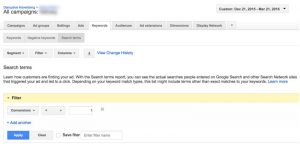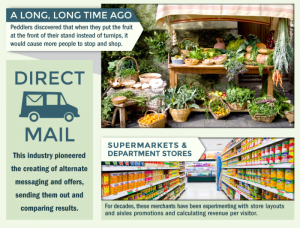The good folks at Google seem to like P-words when it comes to naming new SEO algorithms. In particular, they like animal P-words. There’s already been Panda and Penguin, which were two real game-changers in how websites rank. We’re wondering what might come next.
Porcupine, perhaps. Or maybe Platypus. And it occurs to us that Platypus would be an extremely apt choice, because just as Search Engine Optimisation remains a mystery to many, so too did the evolution of the platypus baffle scientists for centuries.

In fact, according to National Geographic, when scientists were first presented with the carcass of a platypus a couple of centuries ago, they thought it was a hoax. It’s a bit like a duck, a bit like an otter, and a bit like a beaver, but all in all, it’s like nothing else on earth. It’s no wonder that people were dumbfounded.
Today, SEO is a bit like that. It needs a bit of this, a bit of that, and a bit of the other to function properly and deliver you the results you want. But you can’t just stitch those elements together in an ad hoc manner and hope to pull the wool over people’s eyes, the way those scientists suspected somebody was trying to do with them. Google is the most knowledgeable and most powerful scientist of them all, and will quickly see through that. Instead, like the platypus, SEO has to evolve organically and naturally.
That means there are no quick-fix short cuts, despite what others involved in SEO might tell you. Be particularly wary of anybody who says the best and quickest way to boost your ranking is through back-links from as many other sites as possible. That might have worked one time, but the Pandas and Penguins of right now – and the possible porcupines and platypuses of the future – just won’t fall for it any more.
Despite this though, there are still unscrupulous SEO companies out there who veer into ‘black hat’ territory by trying to sell you an SEO package built around back-links. They typically then outsource this work to others, who set up those links from poor quality sites. There might still be short-term gains, but when Google comes to look closely, it ends up using another couple of P-words: it penalises your site and sends it plummeting back down the rankings, to where scarcely anybody will find it.

In fact, the damage done could be so great that you end up having to pay for a ‘toxic link’ removal service. Basically, you’d be paying to get rid of the very things that you paid to get in the first place!
A far better approach to SEO today is to begin by ensuring that your website is regularly updated with unique and creative content. This allows for greater user engagement, and it shows Google that your site does indeed deliver what people are looking for. Blog posts and news items are a particularly good way of doing this, as they can be shared through your social media channels too, to really maximise the online traffic that your business enjoys.
You also need a good SEO agency to do all the invisible back-end work in the proper manner – not by taking short-cuts. There’s tagging and linking and mapping and describing and much more to be done and re-done. You won’t actually see the difference it makes on the website itself – but where it really does make the difference is where your site ranks for common search terms. Get this back-end work done properly, and you’ll get near the top – and stay there.
There are other elements to good SEO practice too, and overall, a proper SEO strategy will take time to evolve before you see lasting results. Think months rather than days – but remember that the important thing is to get there properly and stay there.
(134)





